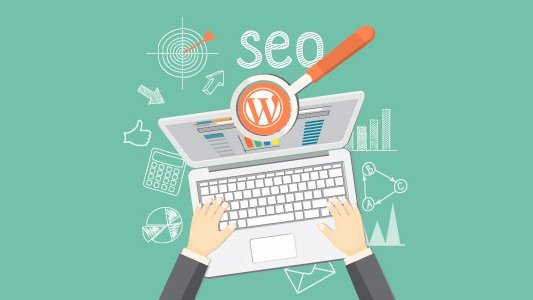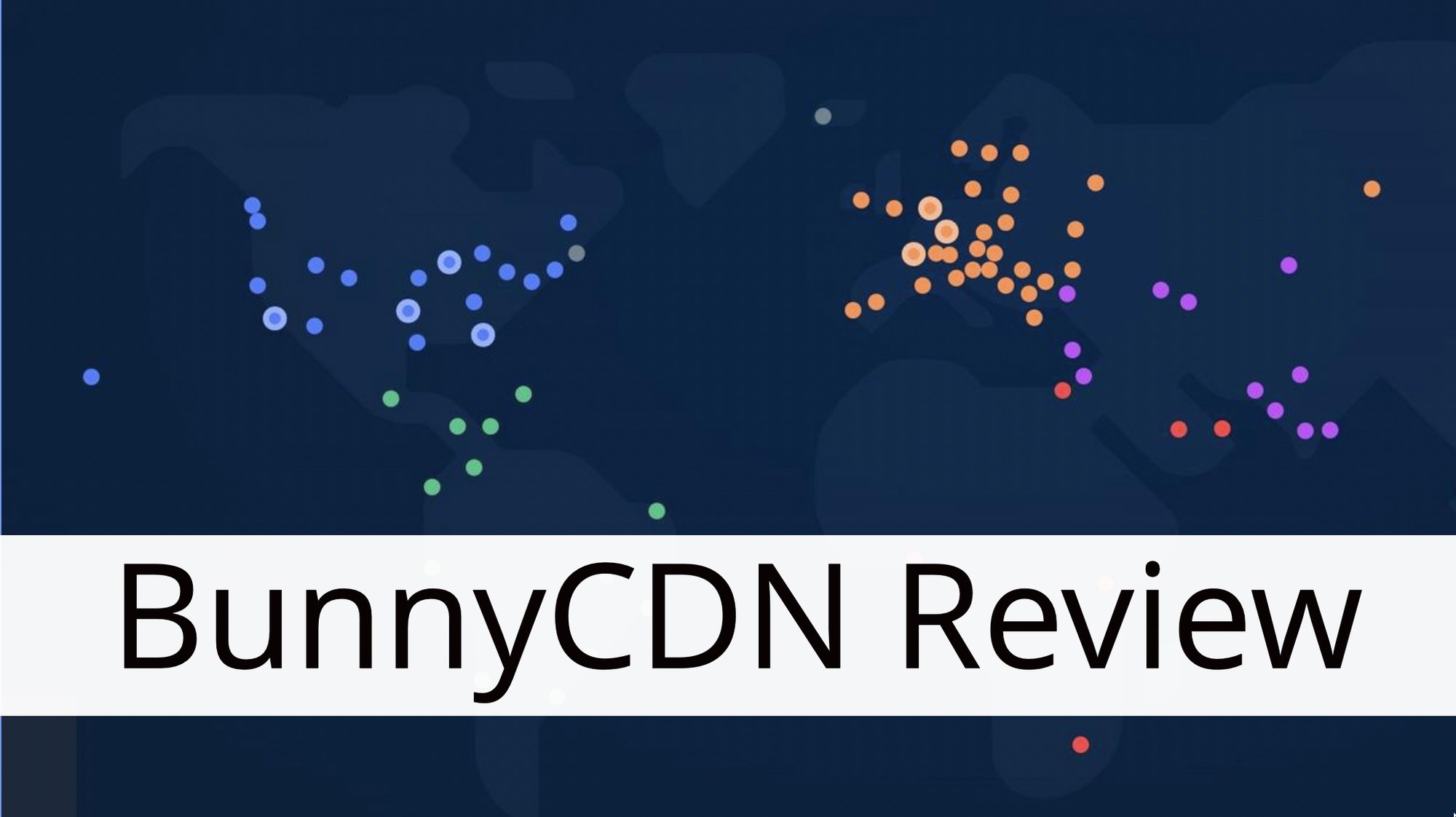Is your WordPress website running smoothly or could it use some improvement? Whether you’re a seasoned WordPress user or just starting out, effective website management is key to ensuring your site is running at its best. Managing a WordPress website involves several essential tasks, including software updates, content management, design elements, and more. However, with the right tips and strategies, you can take control and ensure your website is performing optimally.
In this article, we’ll explore various aspects of WordPress website management, providing you with valuable tips and insights to enhance your website’s performance. From updating your WordPress software to optimizing website performance and staying updated with SEO practices, we’ve got you covered. So, let’s dive in and discover the best practices for effective WordPress website management.
“Effective website management is like conducting an orchestra; it requires skill, precision, and attention to detail to create a harmonious and impressive performance.”
Understanding WordPress Website Management
📚 Introduction
WordPress is a popular content management system (CMS) that powers millions of websites around the world. From personal blogs to business websites, WordPress offers a user-friendly platform for building and managing online presence. But what exactly is website management, and why is it so important for the success of your WordPress site?
🔍 Defining Website Management
Website management refers to the ongoing tasks and processes involved in keeping a website running smoothly. It encompasses everything from creating and updating content to ensuring the site’s security and performance. Effective website management involves:
- Content Management: Regularly updating your website with fresh and relevant content is crucial for engaging visitors and maintaining search engine rankings. This includes publishing blog posts, adding new pages, and managing media files.
- Design and Layout: Ensuring a visually appealing and user-friendly design is essential for attracting and retaining visitors. Website management entails selecting and customizing themes, arranging page layouts, and optimizing the site’s navigation.
- Technical Maintenance: Websites require regular maintenance to function optimally. This involves updating plugins and themes, monitoring site speed and performance, and conducting regular backups and security checks.
- Search Engine Optimization (SEO): A well-managed website incorporates SEO strategies to improve its visibility in search engine results. This includes optimizing page titles and meta descriptions, using relevant keywords, and improving site speed and mobile responsiveness.
💼 Importance of Effective Website Management
Proper management of your WordPress website is crucial for several reasons:
- User Experience: A well-maintained website provides visitors with a seamless and enjoyable browsing experience. It ensures that content is up-to-date, navigation is intuitive, and pages load quickly.
- Search Engine Rankings: Regularly updating and optimizing your website improves its chances of ranking higher in search engine results. This leads to increased visibility, organic traffic, and potential customers for your business.
- Security: Websites are vulnerable to security breaches, malware attacks, and data theft. Effective website management involves implementing security measures to protect your site and user data, ensuring a safe browsing experience.
- Brand Reputation: Your website is often the first point of contact for potential customers. A well-managed site reflects professionalism, credibility, and trustworthiness, enhancing your brand’s reputation.
- Time and Cost Efficiency: With effective website management, you can streamline and automate various tasks, saving you time and resources. This allows you to focus on other aspects of your business while ensuring your website remains up-to-date and optimized.
In conclusion, understanding and implementing effective website management practices is vital for the success of your WordPress site. From content management to technical maintenance and SEO, taking care of these aspects ensures a user-friendly experience, improved search rankings, and a secure online presence. So, don’t overlook the importance of website management – invest time and effort into keeping your WordPress site running smoothly for optimal results.
🔗 To learn more about website management best practices, check out our article on WordPress Website Management Guide.
WordPress Basics
Are you new to WordPress and feeling a little overwhelmed? Don’t worry, we’ve got you covered! In this article, we’ll provide you with a comprehensive understanding of the WordPress basics. From navigating the WordPress dashboard to managing your website’s content and design elements, you’ll be ready to rock your WordPress site in no time.
WordPress Dashboard
The WordPress dashboard is your command center, where you can control every aspect of your website. Think of it as your digital control panel, allowing you to customize and manage your site effortlessly. Here are a few key points to know about the WordPress dashboard:
- Accessing the Dashboard: After logging into your WordPress site, you can access the dashboard by adding
/wp-adminto the end of your domain name (e.g., www.yourdomain.com/wp-admin). This will take you to the login page, where you can enter your credentials and access the dashboard. - Layout and Navigation: Once you’re in the dashboard, you’ll notice a clean and user-friendly interface. The main navigation menu is on the left-hand side, and it consists of various sections like Posts, Media, Pages, Appearance, Plugins, and Settings. Each section contains specific tools and features.
- Customizing the Dashboard: If you want to personalize your dashboard experience, WordPress allows you to rearrange the dashboard widgets according to your preferences. Simply click on the “Screen Options” tab at the top right corner of the dashboard and check/uncheck the widgets you want to display/hide.
- User Roles: WordPress provides different user roles, each with its own set of privileges. The Administrator role has full access to all the features and settings, while other roles like Editor, Author, Contributor, and Subscriber have limited access. Make sure to assign user roles accordingly to maintain security and manage content effectively.
Website Content Management
Your website’s content is what attracts and engages visitors, so it’s crucial to manage it effectively. WordPress offers a range of features and tools to help you create and organize your content seamlessly. Here’s what you need to know:
- Creating and Editing Posts: Posts are typically used for blog content, news articles, or time-based updates. To create a new post, simply click on the “Posts” section in the dashboard, then click on “Add New.” You can then enter the title, write your content using the built-in editor, and add media, such as images or videos.
- Managing Pages: Unlike posts, pages are static and are used for permanent content like your About Us page or Contact page. To create a new page, go to the “Pages” section in the dashboard and click on “Add New.” You can then enter the title, add content, and customize the page attributes.
- Organizing Content with Categories and Tags: Categories and tags allow you to organize your content effectively. Categories are used to group related posts, while tags are more specific and can be used to highlight keywords or topics. You can create and assign categories and tags when creating or editing a post.
Website Design Elements
Aesthetics play a crucial role in captivating your visitors and creating a positive user experience. WordPress provides a wide range of design elements through themes and plugins. Let’s delve into the key points:
- Choosing a Theme: A theme defines the overall look and layout of your website. WordPress offers thousands of free and premium themes that you can choose from. You can access and install new themes by going to the “Appearance” section in the dashboard and clicking on “Themes.” Simply activate the theme you like, and your website will reflect the new design.
- Extending Functionality with Plugins: Plugins are powerful tools that allow you to enhance and extend the functionality of your WordPress site. From search engine optimization (SEO) to contact forms and social media integration, there’s a plugin for almost everything. You can find and install plugins through the “Plugins” section in the dashboard.
WordPress provides endless possibilities for creating and managing a successful website. By mastering the basics of the WordPress dashboard, content management, and website design elements, you’ll be well on your way to building a website that stands out from the crowd. Happy WordPress-ing! 🎉
Tips for Effective WordPress Website Management
Are you a website owner who uses WordPress as your content management system? If so, you’re in good company. WordPress currently powers over 35% of all websites on the internet. With its user-friendly interface and extensive customization options, it’s no wonder why WordPress is so popular.
However, managing a WordPress website effectively requires more than just setting up a basic theme and adding content. To ensure optimal performance, security, and SEO, there are some essential tips you should keep in mind. Let’s dive into them:
Regularly Update Your WordPress Software
WordPress regularly releases updates to improve functionality and security. It’s crucial to stay up-to-date with these updates to keep your website running smoothly and protect it from vulnerabilities. Updating your WordPress software is a simple process; just follow these steps:
- Backup your site: Before updating, it’s always a good idea to create a backup of your website in case anything goes wrong during the update process. This will allow you to restore your website to its previous state if necessary.
- Check for updates: Log in to your WordPress dashboard and navigate to the Updates section. Here, you’ll see if there are any available updates for your WordPress core, themes, or plugins.
- Update WordPress core: Start by updating the core WordPress software. Click on the “Update Now” button, and WordPress will automatically download and install the latest version.
- Update themes and plugins: After updating the core, check for any available updates for your themes and plugins. Click on the checkboxes next to the items you want to update, and then click on the “Update Plugins” or “Update Themes” button.
Perform Regular Website Backups
Regularly backing up your website is like having an insurance policy in case of any unforeseen events or disasters. It allows you to restore your website to a previous version quickly. Here’s how you can perform regular backups:
- Use a backup plugin: There are various backup plugins available for WordPress that make the process quick and easy. Some popular options include UpdraftPlus, BackupBuddy, and VaultPress.
Make Use of WordPress Plugins Smartly
WordPress plugins are powerful tools that extend the functionality of your website. However, it’s essential to use them wisely to avoid slowing down your site or compromising its security. Here are some tips:
- Choose reliable plugins: Before installing a plugin, read reviews, check its ratings, and ensure that it is regularly updated and supported by its developers.
- Avoid plugin overload: Installing too many plugins can slow down your website. Be selective and only use plugins that are necessary for your website’s functionality.
- Regularly update and remove unused plugins: Like any other software, plugins need to be updated to stay secure and compatible with the latest WordPress version. Remove any plugins that you no longer use to reduce the risk of vulnerabilities.
Stay Updated With SEO Practices
To drive organic traffic to your website, it’s crucial to implement effective SEO strategies. Here’s how you can stay updated with SEO practices:
- Follow industry blogs: Stay informed about the latest SEO trends, algorithm updates, and best practices by regularly reading reputable SEO blogs such as Moz, Search Engine Journal, and Neil Patel.
- Use SEO plugins: WordPress offers a range of SEO plugins that can help optimize your website, such as Yoast SEO and All in One SEO Pack. These plugins provide insights and recommendations for improving your on-page SEO.
Optimize Website Performance
Website performance plays a vital role in user experience and search engine rankings. Here are some performance optimization tips:
- Choose a lightweight theme: Opt for a well-coded, lightweight theme that doesn’t bog down your website’s loading speed.
- Optimize images: Compress your images before uploading them to your website to reduce file sizes and improve loading times. You can use plugins like Smush or EWWW Image Optimizer for this purpose.
Monitor Website Security
Ensuring the security of your WordPress website is essential to protect your data and your visitors. Here’s how you can monitor your website’s security:
- Install a security plugin: Use a reliable security plugin like Wordfence or Sucuri Security to monitor and protect your website from potential threats.
- Use strong passwords: Always use strong, unique passwords for your WordPress admin account and any other user accounts on your website. Consider using a password manager to help generate and store complex passwords.
By following these tips, you can effectively manage your WordPress website, ensuring its stability, security, and performance. Remember, managing a website is an ongoing process, so it’s important to stay informed about the latest WordPress updates, security threats, and SEO practices. With the right approach, you can take your WordPress website to the next level. 🚀
Facing Challenges in WordPress Website Management
Maintaining a WordPress website can be both rewarding and challenging. While WordPress provides a user-friendly platform for website creation, there are still various challenges that website owners face when it comes to managing their sites. In this article, we will explore three common challenges and provide tips on how to overcome them effectively.
Overcoming Technical Issues
Technical issues can be a major roadblock in the smooth functioning of a WordPress website. From plugins conflicts to unexpected errors, these issues can leave website owners frustrated and lost. Here are some tips to help you overcome technical challenges:
- Regular Plugin and Theme Updates: Keeping your plugins and themes up to date is essential to ensure compatibility with the latest version of WordPress. Outdated plugins can conflict with each other and even cause security vulnerabilities. Make a habit of regularly checking for updates and install them as soon as they are available.
- Troubleshooting and Debugging: When you encounter a technical issue, it’s important to stay calm and approach it systematically. Start by disabling recently installed plugins or themes to identify the root cause of the problem. If that doesn’t resolve the issue, you can seek assistance from WordPress support forums or hire a professional developer to diagnose and fix the problem.
- Backup and Restore: It’s always a good practice to create regular backups of your website. In case of any major technical issues or website crashes, having a recent backup can save you a lot of time and effort. WordPress offers many backup plugins that can automate the process, making it easier for you to restore your website to a previous working state.
Keeping Up With Updates
WordPress, being an open-source platform, releases regular updates to improve security, fix bugs, and introduce new features. However, keeping up with these updates can be a challenge for website owners. Here are some strategies to help you stay on top of updates:
- Enable Automatic Updates: WordPress allows you to enable automatic updates for minor releases. This means that your website will be automatically updated to the latest minor version, ensuring that you have the latest bug fixes and security patches. However, it’s important to note that major updates, such as major WordPress version upgrades, should be carefully tested before implementing them on your live website.
- Test Updates in a Staging Environment: Before applying updates to your live website, it’s recommended to test them in a staging environment. A staging environment is a replica of your website where you can experiment with updates, plugins, and themes without affecting your live site. This way, you can ensure that updates don’t cause any compatibility issues or conflicts before implementing them on your production site.
- Monitor WordPress News and Changelogs: Stay informed about the latest updates, bug fixes, and security patches by regularly checking WordPress news sources and official changelogs. This can give you insights into the changes made in each update and help you decide whether it’s necessary to apply the update immediately or wait for more information.
Managing Website Traffic
As your website grows, managing traffic becomes a critical challenge. High traffic can slow down your website, affect user experience, and even lead to downtime. Here are some tips to effectively manage website traffic:
- Optimize Page Loading Speed: Slow-loading websites can lead to high bounce rates and dissatisfied visitors. Optimize your website’s performance by compressing images, minifying CSS and JavaScript files, and utilizing caching plugins. You can also consider using a Content Delivery Network (CDN) to deliver your website’s content faster to visitors from different geographical locations.
- Use a Caching Plugin: Caching plugins generate a static version of your website’s pages, reducing the load on your server and improving website speed. Popular cache plugins like W3 Total Cache and WP Super Cache offer easy setup and configuration options to enhance your website’s performance.
- Scale Your Hosting Environment: If your website continues to experience high traffic, it might be necessary to upgrade your hosting plan or move to a dedicated server or cloud hosting. Scaling your hosting environment ensures that your website can handle the increased traffic without compromising speed and user experience.
In conclusion, while managing a WordPress website comes with its challenges, armed with the right knowledge and strategies, you can overcome these hurdles and ensure a smooth website management experience. Stay proactive, keep up with updates, and implement best practices to tackle technical issues and manage increasing website traffic effectively.
Resources for Effective WordPress Website Management
Managing a WordPress website can sometimes feel overwhelming, especially if you’re new to the platform. From designing and optimizing your site to troubleshooting technical issues, there’s a lot to learn and stay on top of. Fortunately, there are numerous resources available to help you navigate the world of WordPress and ensure that your website runs smoothly. In this article, we’ll explore some of the best resources for effective WordPress website management.
WordPress Learning Resources
When it comes to learning the ins and outs of WordPress, it’s essential to have access to reliable and up-to-date learning materials. Here are a few resources that can help you deepen your understanding of the platform:
- WordPress Codex: The WordPress Codex is the official online manual for WordPress. It contains a wealth of documentation, tutorials, and guides that cover everything from basic setup to advanced customization.
- WordPress TV: If you prefer video tutorials, WordPress TV is a treasure trove of helpful content. From beginner-friendly introductions to in-depth discussions on specific topics, WordPress TV offers a diverse range of video resources.
- WordPress YouTube Channels: There are several popular YouTube channels dedicated to WordPress. These channels provide regular updates, tutorials, and tips to help you make the most of your WordPress website. Some notable channels include WPBeginner, WPCrafter, and WP101.
Community Forums
One of the best things about WordPress is its vibrant and supportive community. Joining online forums allows you to connect with like-minded individuals, gain insights from experienced users, and seek solutions to your WordPress-related questions. Here are a couple of popular community forums for WordPress enthusiasts:
- WordPress.org Support Forums: The official WordPress.org support forums are an excellent place to find answers to common WordPress issues. With a large and active community of users and developers, you’re likely to find solutions to your problems or receive guidance from experienced members.
- Stack Exchange – WordPress: Stack Exchange is a question and answer platform that includes a dedicated WordPress section. It’s a great place to ask specific questions and get responses from knowledgeable individuals in the WordPress community.
Blogs and Podcasts
Staying up-to-date with the latest trends and updates in the WordPress world is crucial for effective website management. Blogs and podcasts are fantastic mediums for learning about new techniques, best practices, and industry insights. Here are a few popular WordPress blogs and podcasts to check out:
- WPBeginner Blog: WPBeginner is a popular blog that offers a wide range of WordPress resources, including tutorials, tips, and plugin reviews. Their content is beginner-friendly and covers various WordPress-related topics.
- MasterWP Podcast: The MasterWP Podcast features interviews with WordPress experts who share their insights and experiences. Listening to these conversations can provide you with valuable perspectives and ideas for managing your WordPress website more effectively.
Online Courses
If you prefer a more structured and comprehensive approach to learning WordPress, online courses can be a great option. These courses are typically designed by industry professionals and cover a range of topics from WordPress basics to advanced development. Here’s a noteworthy online course platform:
- LinkedIn Learning: LinkedIn Learning offers a variety of WordPress courses led by industry experts. These courses cover different skill levels and topics, making it easy to find one that suits your needs. LinkedIn Learning also provides certificates upon completion, which can be a valuable addition to your portfolio.
WordPress Meetups
While online resources are fantastic, sometimes connecting with fellow WordPress enthusiasts in person can provide valuable insights and networking opportunities. WordPress meetups are informal gatherings organized by local communities. They offer the chance to meet others in your area who share your passion for WordPress. You can find WordPress meetups near you on the official WordPress Meetup website.
By leveraging these resources, you’ll have a wealth of knowledge and support at your fingertips to effectively manage your WordPress website. Whether you prefer tutorials, forums, blogs, or courses, the WordPress community has something to offer. Take advantage of these resources, and you’ll be well-equipped to handle any WordPress challenge that comes your way. So, dive in and explore the vast world of WordPress management!🚀
Conclusion
In conclusion, effective WordPress website management is crucial for ensuring the success and smooth operation of your website. By implementing the tips and strategies discussed in this article, you can take control of your WordPress site and maximize its potential.
Remember, regularly updating your WordPress software, performing backups, utilizing plugins wisely, staying updated with SEO practices, optimizing website performance, and monitoring website security are all essential aspects of effective management.
By addressing and overcoming challenges such as technical issues, keeping up with updates, and managing website traffic, you can maintain a strong online presence and provide a seamless user experience.
To further enhance your WordPress website management skills, be sure to take advantage of the resources available to you. Explore WordPress learning resources, participate in community forums, follow blogs and podcasts, consider online courses, and attend WordPress meetups. These opportunities will help you stay up-to-date with the latest trends and best practices in website management.
If you’re looking for a reliable and comprehensive solution for your managed WordPress hosting needs, consider exploring Managed-WP.™. Managed-WP is a premium managed WordPress cloud hosting platform that simplifies infrastructure, offers freedom in digital experiences, and provides expert 24/7/365 problem-solving. With Managed-WP, you can focus on your website’s content and growth, while leaving the technicalities to the experts. Visit managed-wp.com to learn more about how Managed-WP can help you streamline your WordPress website management.
Frequently Asked Questions
- What are some tips for effective WordPress website management?
Some tips for effective WordPress website management include: regularly updating WordPress core, themes, and plugins; backing up your website regularly; optimizing website performance; implementing strong security measures; monitoring website analytics; and regularly publishing fresh and engaging content.
- How often should I update WordPress and its plugins?
It is recommended to update WordPress and its plugins as soon as updates become available. Regular updates ensure your website stays secure, performs optimally, and benefits from the latest features and enhancements.
- Why is it important to back up my WordPress website?
Backing up your WordPress website is crucial as it allows you to restore your website in case of any data loss, hacking, or other technical issues. Regular backups ensure you have a safe and easily recoverable copy of your website’s files and database.
- What security measures should I implement for my WordPress website?
To enhance the security of your WordPress website, you should: use strong and unique passwords, install a reputable security plugin, enable two-factor authentication, regularly scan for malware, limit login attempts, and keep all themes and plugins updated.
- How can I monitor my WordPress website’s performance?
You can monitor your WordPress website’s performance using tools like Google Analytics, which provides valuable insights into visitor behavior, website speed, and other performance metrics. Additionally, you can use caching plugins, optimize images, and minify CSS and JavaScript to improve website performance.



















